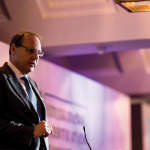Returning with our fourth annual Disputes Yearbook, by far the largest we have yet published, it is still a great time to be a quality litigator or arbitrator at a well-positioned team. While the flood of banking-related work that gave such a shot in the arm to the City contentious market post-Lehman has now largely passed – as have the days when London courts were block-booked by Russian clients – there is still plenty to go around.
As can be seen by our cover feature, the commercial Bar continues to thrive, with the Magic Circle of the chambers variety looking rather more confident over the last decade than their larger solicitor counterparts.
The explosion in disputes funding, the dramatic emergence of disputes boutiques and the entry of serious contentious practices at the City arms of US players are all trends that have continued to recast the market. White-collar crime work becomes steadily more important to large London law firms that once would not have touched crime with a barge pole, witnessed most strikingly this year by Linklaters’ recruitment last month of Director of Public Prosecutions Alison Saunders. As we go to press, Serious Fraud Office head David Green QC is widely touted as being primed to join the ranks of a major international law firm.
The global boom in arbitration continues without pause, even if there is mounting evidence of a widening split between the high end of internationally-mobile disputes and a long tail of price-sensitive domestic work. But if lawyers can position themselves at the lucrative end, there is not a much better place to make money in the global legal market.
Yet it is remarkable in some regards how bullish City lawyers are regarding the resilience of the profession and London’s courts with Brexit on the horizon. Litigators look totally unfazed over the prospect of even a messy EU exit, certainly compared to transactional lawyers, and arbitrators, if anything, see an upside.
It has become common to see the top dispute specialists generate the kind of partner profits once only associated with the Magic Circle, while there are a number of specialist practices generating over £20m. Stewarts and Quinn Emanuel Urquhart & Sullivan have both gone from strength to strength, providing real muscle to the once massively-under-served claimant Bar.
It is striking that such rich rewards are occurring in commercial disputes at a period in which the criminal justice system is facing unprecedented pressure. Can one side remain unaffected as a chunk of the wider justice system edges into outright dysfunction? Apparently so.
The profession and judiciary likes to congratulate itself on its ability to communicate with government, but the reality is an increasingly-fragmented and divided legal industry has been generally awful at lobbying policymakers or even explaining its contribution to the economy and society. The various sectional interests have been all too easy to divide for government.
London and English litigators and jurists will continue to have clout and financial success, but that division sells the Bench, the London courts and the wider profession painfully short. I would honestly advise the profession to be more ambitious in a broader sense, but for now business is booming.













